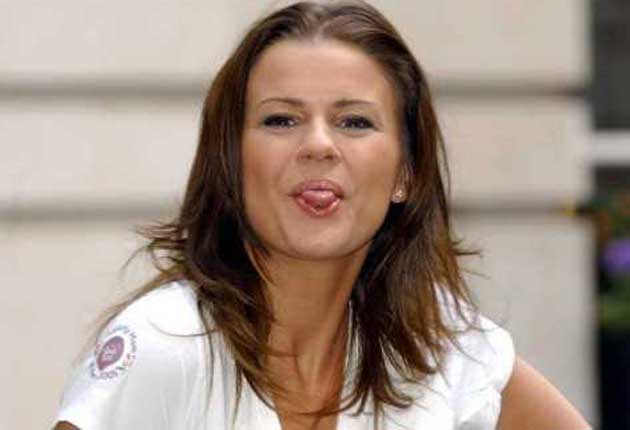Hit& Run: The prizes not worth winning

In December 2008, John Terry was filmed for a brief interview by cable channel Chelsea TV and was pictured with his then three-year-old daughter Georgie sitting on his knee. Who knows whether this was a decisive turning point in the polling? But it must have impressed some of the electorate, for the following June, Terry was named Father of the Year by Heinz's Daddies Sauce. Clutching his award, the victorious England Captain earnestly spoke the "great honour" he felt in accepting the brazenly confected PR prize.
Fast forward just over six months, and Terry's latest title as the nation's love-rat-in-chief doesn't exactly bode well for the next winner of the prize, which is only in its second year. The inaugural winner was Peter Andre, who indeed looks a loving father, although one would hope there are better exemplars of selfless, nurturing fatherhood in Britain than a man who'll happily tell the papers how long it's been since he last had sex (eight months, since you ask).
The superstitious among us could suggest that this prize – described by the Daddies Sauce press office as something "voted for by 2,000 random people" – curses its winners.
A similar fate often awaits the Celebrity Mother of the Year, a prize that is also decided by public vote. Since its inception in 2002 the award has been sponsored by Quality Street, Freemans, Grattan and La Redoute. Kerry Katona has picked up the gong twice – in 2002 and 2005 (just two years later, another poll, by online pollsters onepoll.com, rated her second worst celebrity mum behind Britney Spears). In July 2007, Katona had a very public breakdown and her popularity plummeted, so Katie Price took her place.
It doesn't take Max Clifford to work out that crowbarring together celebrity polls and products generates publicity. But as legions of brands have learned, taking a punt on an ambitious, thrill-seeking, publicity-crazed celebrity risks leaving your corporate image slightly tainted.
So here are some object lessons for would-be prize sponsors. The key seems to be taking the decision out of the hands of Mr and Mrs Great British Public; we appear to be rather cavalier in our choices. By contrast Rear of the Year, founded in 1976, (Barbara Windsor's behind picked up the first gong), allows the public to nominate its favourite bottom but makes allows the sponsor, curently a jeans company, to make the final call. Last year the inoffensive Rachel Stevens and tenor Russell Stevens hauled their beatific behinds onto its podium – you'd be hard pressed to find a less scandal-prone pair. In a similarly conservative frame of mind, Specsavers chose Vic Reeves and his wife Nancy Sorrell as its Celebrity Spectacle Wearers of the Year 2009; actress Liz Smith won the "services to specs" award.
The British Pipesmokers' Council's Pipe Smoker of the Year prize saw National Treasure Stephen Fry lift the trophy in 2004. Sadly, that was the final year of this storied celebrity award, presumably because all its potential nominees had croaked or had chronic lung diseas. It's not always true that all publicity is good publicity. Rob Sharp
The stars take a brow
Geek chic may be passé, but bushy brainbox brows are having a moment. Everyone from Beyoncé to Miley Cyrus was sporting what "a strong brow" at the Grammys on Sunday. Lady GaGa went back to her Italian roots with her beetly brows, while Adam Lambert drew his on with a magic marker. It's straight from the catwalks: at Gaultier's autumn show, thin Dietrich-style arches over delicate shading made fashionably sunken eyes. Strong brows bring out shading below cheekbones and sharpen a jawline. In high-definition times, no one wants to look a pasty podger on TV. We've come full circle since Jean Harlow drew on brows because her own blonde ones were lost on black and white film. Harriet Walker
He shoots, you score
Forget Viagra – the most powerful aphrodisiac comes from watching your football team score an astounding victory. Just ask the Catalans. In Barcelona, a dramatic rise in the number of babies born last week has been linked to the euphoria of May, when FC Barcelona trounced arch-rivals Real Madrid 6-2 and then beat Chelsea for a place in the final of the Champions League.
Nine months on, the birth rate in the city has shot up by 45 per cent and the newly born are being dubbed the "Iniesta generation", in honour of the midfielder who inspired his team to win.
The phenomenon of football-assisted pregnancy is not confined to Spain. German fans were similarly overcome when they hosted the World Cup in 2006 and the national team did unexpectedly well. The next spring, hospitals across Germany recorded increases of as much as 30 per cent in the number of babies born.
The winner of the 2010 World Cup will be decided in Johannesburg on 11 July. But we'll have to wait until next year to find out whether the competition ignites fans' passions in the bedroom as well as on the terraces. For countries with a low birth rate, another World Cup baby boom would be welcome. Indeed the head of one German maternity hospital thinks the country should host the competition every year: "If we had a World Cup every year we'd have the answer to our low birth rate." But in England, where the population already stands at 51 million, pride will not be the only thing making the country swell, if Fabio Capello's team does triumph this summer. Nicholas Hamilton
Join our commenting forum
Join thought-provoking conversations, follow other Independent readers and see their replies
Comments
Bookmark popover
Removed from bookmarks